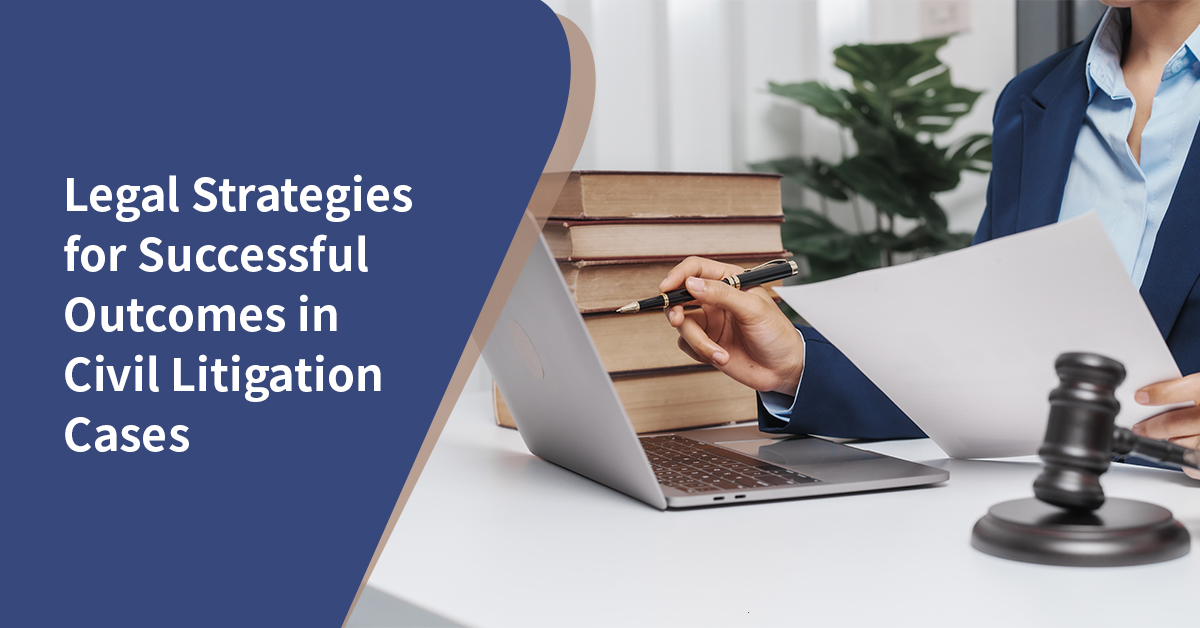Achieving a successful outcome in civil litigation requires a combination of strategic planning, thorough preparation, and effective execution. Here are several key legal strategies that can significantly enhance the prospects of success in civil litigation cases:
1. Comprehensive Case Assessment
A comprehensive assessment of the case is the first and most crucial step in civil litigation. This involves a detailed review of all facts, evidence, and applicable laws. Understanding the strengths and weaknesses of both your case and the opposition’s case is essential. This includes evaluating witness credibility, documentary evidence, and any potential legal defenses. A thorough case assessment helps in forming a clear strategy and setting realistic expectations for the client.
2. Effective Pleading and Motion Practice
The initial pleadings, including the complaint or answer, set the stage for the entire litigation process. Drafting clear, concise, and legally sound pleadings is critical. Additionally, strategic use of motions can shape the course of the litigation. For example, a motion to dismiss can eliminate weak claims early on, while summary judgment motions can resolve issues without the need for a full trial. Motions can also be used to compel discovery or exclude inadmissible evidence, thereby strengthening your position.
3. Thorough Discovery Process
The discovery phase is where both parties gather information and evidence from each other. Effective discovery strategies include drafting precise interrogatories, requests for production, and conducting depositions. It is essential to ask the right questions and request relevant documents that can provide crucial evidence to support your case. Additionally, identifying and anticipating the opposition’s discovery tactics can help in countering any attempts to withhold or obscure critical information. Properly leveraging electronic discovery (e-discovery) tools can also be advantageous in handling large volumes of digital data.
4. Expert Witnesses and Testimony
Expert witnesses can play a pivotal role in civil litigation by providing specialized knowledge and opinions that support your case. Selecting credible and qualified experts who can clearly articulate their findings and withstand cross-examination is vital. Expert testimony can be particularly influential in complex cases involving technical, medical, or financial issues. Preparing your experts thoroughly and ensuring their testimony aligns with the overall case strategy is crucial for success.
5. Negotiation and Settlement
Many civil cases are settled before reaching trial. Developing strong negotiation skills and exploring settlement opportunities throughout the litigation process can save time and resources. Engaging in mediation or alternative dispute resolution (ADR) methods can also facilitate amicable settlements. A well-timed and well-prepared settlement offer can be an effective strategy, particularly when it is supported by strong evidence and a clear understanding of the opposing party’s position and priorities.
6. Trial Preparation and Presentation
If the case proceeds to trial, meticulous preparation and compelling presentation are essential. This includes developing a clear trial strategy, organizing evidence, preparing witnesses, and crafting persuasive opening and closing statements. Visual aids and demonstrative evidence can enhance the jury’s understanding of complex issues. Anticipating and preparing for the opposition’s arguments and cross-examinations can help in maintaining control over the trial narrative.
7. Post-Trial Motions and Appeals
Even after a trial verdict, legal strategies continue to be important. Post-trial motions can address issues such as judgment notwithstanding the verdict (JNOV) or seeking a new trial. If the outcome is unfavorable, evaluating the grounds for an appeal and effectively presenting appellate arguments can be critical. Understanding appellate standards of review and focusing on legal errors or procedural issues that impacted the trial outcome are key components of a successful appeal.
Conclusion
Successful outcomes in civil litigation require a multifaceted approach that combines thorough preparation, strategic use of legal tools, effective negotiation, and strong trial advocacy. By conducting a comprehensive case assessment, leveraging discovery, utilizing expert testimony, and maintaining a focus on negotiation and settlement opportunities, lawyers can enhance their chances of achieving favorable results for their clients. Continued diligence through trial preparation, presentation, and post-trial procedures ensures that every possible avenue for success is explored.
